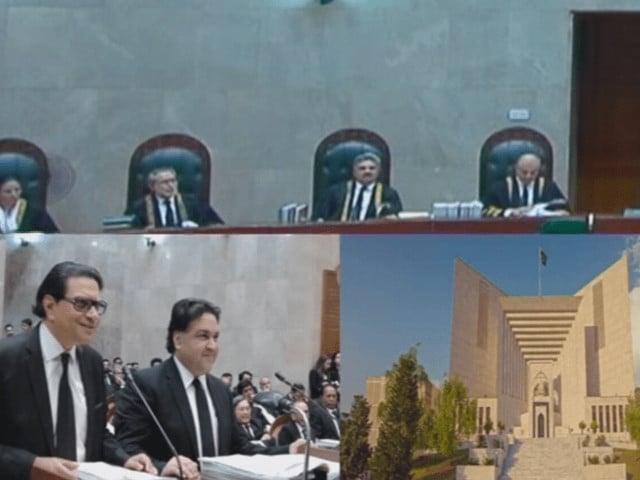KARACHI:Despite a pending review petition, Chief Justice of Pakistan (CJP) Qazi Faez Isa continues to defend his January 13 ruling that deemed Pakistan Tehreek-e-Insaf’s (PTI) intra-party elections unlawful, resulting in the party losing its election symbol in the recent general elections.
Responding to directives from CJP Isa, the Supreme Court Registrar dispatched a letter on May 3 to British High Commissioner Jane Marriott. This move was spurred by Marriott’s remarks at the Asma Jahangir Conference, where she underscored the significance of democracy, elections, and the imperative of open societies.
“To ensure compliance with this democratic principle the law stipulates that if a political party does not hold intra-party elections, then it would not be eligible for an election symbol. A political party (which had itself voted in this law) did not hold the mandated intra-party elections. The Supreme Court reiterated what the law stipulated,” says the SC letter.
Despite the SC’s stance, several legal experts have criticised the letter, given the pending review petition against the January 13 order. Presently, CJP Isa finds himself entangled in the case of the reserved seat, where he is compelled to clarify the misinterpretation of the January 13 order.
During hearing, CJP queried why PTI candidates hadn’t requested the Election Commission of Pakistan (ECP) for the bat symbol. In response, Faisal Siddiqi, counsel for the Sunni Ittehad Council (SIC), suggested that this could be seen as contempt of court for violating the January 13 order. However, CJP Isa disagreed with Siddiqi and Justice Munib Akhtar.
When Justice Munib Akhtar pointed out that rubber-stamp errors were committed by ECP, CJP Isa reiterated that the crux of the matter lay in PTI’s failure to conduct intra-party elections.
He emphasised that PTI had dodged intra-party elections even when its leader held the prime ministerial position, and instead of complying with the directive, they challenged it in various high courts.
Justice CJP Isa drove home the point that when it came to discussions about democracy, they ought to start with intra-party elections.
Justice Muhammad Ali Mazhar, a co-signatory of the January 13 order, reiterated that the bench had laid down the law: if there were any grievances regarding the non-allocation of reserved seats, the PTI could knock on the court’s door again.


